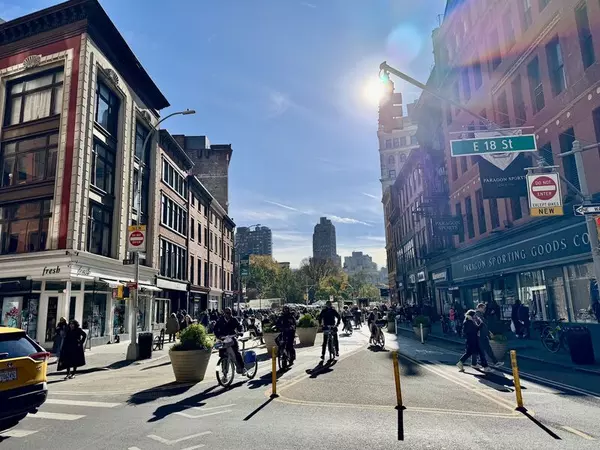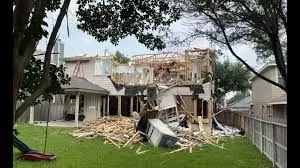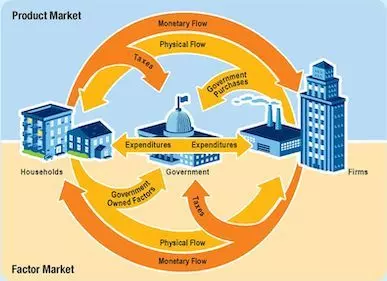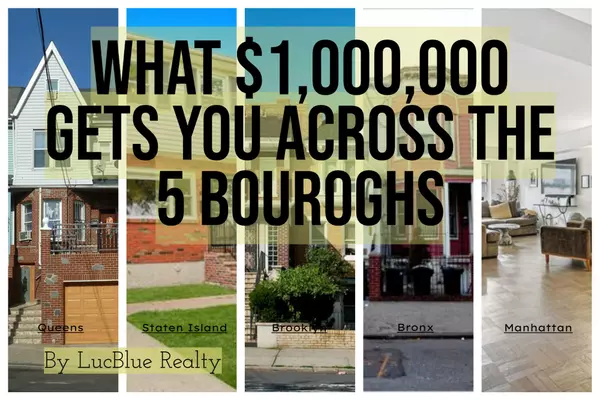What Is A Short Sale

What is a Short Sale? A Guide to NYC’s Real Estate Market
Navigating the real estate market in New York City can be overwhelming, especially when you’re facing financial challenges. One term you might encounter is a short sale, which can be a helpful solution for homeowners struggling to keep up with their mortgage payments. But what exactly is a short sale, and how does it work in NYC? If you find yourself in this situation—or you're a buyer looking to score a good deal—it’s important to understand how this process unfolds in the context of NYC’s unique market.
Step 1: What is a Short Sale?
In the simplest terms, a short sale happens when a homeowner sells their property for less than the amount they owe on their mortgage. The catch is that this sale happens with the lender's approval. While a typical sale allows the homeowner to pay off their mortgage in full, a short sale involves the homeowner requesting permission from the lender to sell for less than what’s owed.
The lender agrees to accept this loss because it’s often more advantageous than going through the expensive and lengthy foreclosure process. The homeowner gets relief, and the lender recovers a portion of the loan amount, all while avoiding the foreclosure route.
Step 2: Why Do Short Sales Happen in NYC?
New York City’s real estate market is dynamic, with property prices that are higher than most parts of the country. This can lead to significant financial strain for homeowners, especially if their financial situation changes unexpectedly. There are several reasons why short sales may arise in NYC:
-
High Property Costs: Many homeowners in NYC stretch their budgets to afford the steep price tags associated with the city’s real estate. Unexpected financial challenges, such as a job loss or medical emergency, can make it impossible to keep up with mortgage payments.
-
Market Changes: NYC's real estate market is constantly evolving, and downturns or natural events can result in homes losing value. Homeowners may end up owing more than their home is worth, prompting the need for a short sale.
-
Foreclosure Complexity: New York’s foreclosure laws are complex and often lengthy. Homeowners facing foreclosure may find that a short sale is a quicker, more manageable way to relieve themselves of the debt.
Step 3: The Process of a Short Sale in NYC
If you’re a homeowner in New York City considering a short sale, it’s important to understand the process involved. Here’s a step-by-step guide:
-
Proving Financial Hardship: To begin the short sale process, the homeowner needs to show they are facing a financial hardship. This could be due to job loss, divorce, medical issues, or another situation that makes it difficult to continue making mortgage payments.
-
Lender’s Approval: The next step is getting the lender’s approval for the short sale. This can be a lengthy process, as the lender will assess the homeowner's financial situation and the current market value of the property. The homeowner must submit a complete financial package, which typically includes income statements, tax returns, and a hardship letter.
-
Listing the Property: Once the lender approves the short sale, the property is listed for sale, often at a price lower than the mortgage balance. In NYC, working with a knowledgeable real estate agent like the team at LucBlue Realty, who specializes in short sales, is essential, as they’ll understand the nuances of both the local market and the short sale process.
-
Receiving Offers: After the property is listed, potential buyers will begin submitting offers. The lender reviews these offers and decides whether to accept them, often with some negotiation. It’s important to note that in a short sale, the lender has the final say.
-
Closing the Sale: If the lender accepts an offer, the short sale moves forward to closing. At this point, the homeowner will sell the property for less than they owe on the mortgage. While the homeowner may still suffer some damage to their credit score, a short sale is typically less damaging than a full foreclosure.
Step 4: The Benefits of a Short Sale for Homeowners
For homeowners facing financial difficulties, a short sale offers several potential benefits:
-
Avoiding Foreclosure: Short sales allow homeowners to avoid the foreclosure process, which is not only time-consuming but also damaging to credit scores.
-
Less Damage to Credit: While a short sale will affect a homeowner’s credit, it’s usually less severe than the impact of foreclosure, which can stay on a credit report for up to seven years.
-
A Quicker Resolution: In many cases, short sales are faster than foreclosures, giving homeowners a quicker path to financial recovery.
Step 5: The Short Sale Advantage for Buyers
Short sales in NYC can be a great opportunity for buyers looking for a bargain. Since the property is sold for less than what’s owed on the mortgage, the price can be more affordable than market value. However, buyers should be aware of a few considerations:
-
Longer Timeline: Short sales can take longer to complete than traditional sales. The lender must approve the sale, which can sometimes take several months.
-
Property Condition: Short sale homes are typically sold as-is. Buyers may need to invest in repairs and renovations after the purchase.
-
Competitive Market: NYC’s real estate market is highly competitive, and multiple buyers may be interested in the same short sale property, which could drive up the price.
Short Sale vs. Foreclosure: What's the Difference?
Though both short sales and foreclosures involve selling a property for less than the mortgage amount, the processes are different:
-
Short Sale: The homeowner is actively involved in the sale process and works with the lender to negotiate terms.
-
Foreclosure: The lender takes possession of the property after the homeowner defaults on the loan. The homeowner is no longer involved, and foreclosure is often more damaging to their credit.
Step 6: Should You Consider a Short Sale?
If you’re a homeowner in NYC who is struggling with mortgage payments, a short sale could be a more manageable option than foreclosure. However, it’s important to consult with a real estate agent and attorney who specialize in short sales to ensure you’re making the best decision for your situation.
For buyers, short sales present the chance to buy a property at a lower price, but they also come with some risks. Make sure you’re prepared for the process and that you’re working with an agent who understands the nuances of short sales in the NYC market.
Reach Out to LucBlue Realty for Expert Guidance
Whether you’re a homeowner considering a short sale or a buyer looking for a great deal, navigating this process in New York City can be tricky. At LucBlue Realty, we have extensive experience in the NYC real estate market and specialize in guiding homeowners through the short sale process.
Our expert team will ensure that you understand every step of the journey, from negotiating with lenders to closing the deal. If you're facing financial challenges or simply looking to explore short sale options, don’t hesitate to reach out.
Contact LucBlue Realty today, and let’s work together to find the best solution for your real estate needs. Whether you're looking to sell or buy, we’re here to make your experience smoother, faster, and more successful. Let us help you navigate the complexities of NYC’s real estate market with confidence!

Categories
Recent Posts











